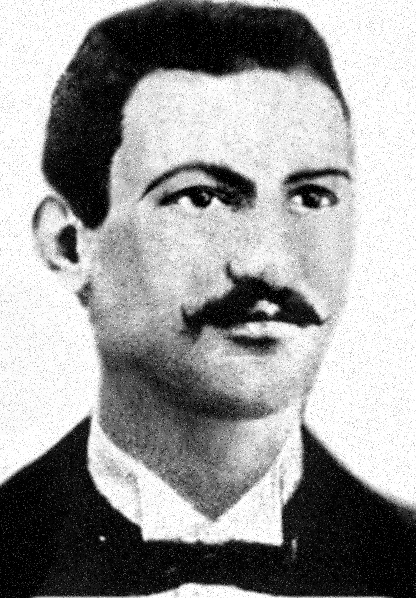 King Umberto I of Italy was born into the house of Savoy on 14th March 1844 and succeeded his father, Emmanuel II, in January 1878. Later that year the first attempt was made on Umberto's life when the anarchist Giovanni Passannante approached the king during a parade in Naples wielding a knife but Umberto warded off the attack with his sabre. The king commuted the resulting death sentence to one of penal servitude for the rest of Passannante's life.
King Umberto I of Italy was born into the house of Savoy on 14th March 1844 and succeeded his father, Emmanuel II, in January 1878. Later that year the first attempt was made on Umberto's life when the anarchist Giovanni Passannante approached the king during a parade in Naples wielding a knife but Umberto warded off the attack with his sabre. The king commuted the resulting death sentence to one of penal servitude for the rest of Passannante's life.
This attack may have been part of a violent period of anarchist activity inspired by the tactic of 'propoganda by deed', which involved assassinations and bombings around the world. Umberto's conservatism and imperial ambitions made him a target, particularly following the Bava-Beccaris massacre of 1898.
This event was named after General Fiorenzo Bava-Beccaris, who ordered his troops to fire on a crowd demonstrating the rise in the price of bread in Milan. The volley of rifle and cannon fire killed between one- and four-hundred people, and injured up to one-thousand. Following the massacre, the king sent Bava-Beccaris a congratulatory telegram and later decorated him for his actions.
Across the Atlantic, an Italian immigrant living in Paterson, New Jersey, called Gaetano Bresci received news about the events in Milan. Bresci, a co-founder of the Italian language anarchist newspaper La Questione Social, decided to avenge the deaths of the demonstrators. In May 1900 he demanded the return of a loan from his comrades on the newspaper and, without a word of explanation, travelled back to his homeland to carry out the deed.
On the evening 28th July 1900, Umberto was attending a sporting event in Monza where he had a villa. While handing out prizes to winning atheletes, the king was approached by Bresci who ran out of the crowd, drew his pistol, and fired three times. Umberto died from the wounds almost instantly. Following his trial, Bresci received a sentence of a life of hard-labour, but was found hanged in his cell less than a year later - the official verdict was suicide although many disputed this conclusion.
Customised search for historical information
29 July 2008
On this day in history: Italian King assassinated, 1900
Subscribe to:
Post Comments (Atom)
















1 comments:
Thanks for the comment, chester
Post a Comment